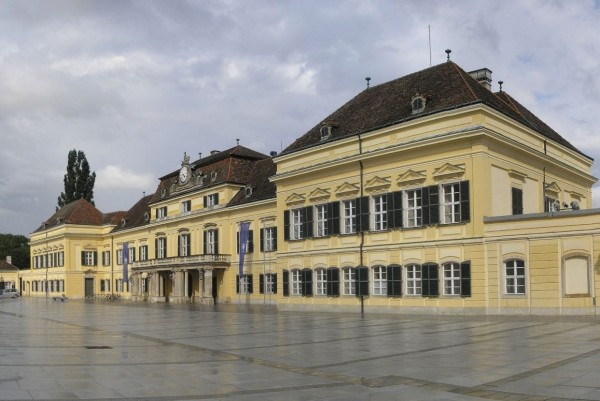Cold War Founded Research Institute Near Vienna Continues to Address Global Challenges of the 21st Century
The year 2022 marks 50 years since Laxenburg-based research institute IIASA was founded to promote East-West scientific cooperation during the Cold War. Today, the institute continues to address the global challenges of the 21st century through its research. The 50th anniversary provides an opportunity to both take stock of the institute’s achievements and to look forward.
 Founded in 1972 during the Cold War, today IIASA national members and funders span the globe from Africa to the Americas, Asia, and Europe. / Picture: © Wikimedia Commons / Gryffindor [CC BY-SA 3.0 (https://creativecommons.org/licenses/by-sa/3.0)]
Founded in 1972 during the Cold War, today IIASA national members and funders span the globe from Africa to the Americas, Asia, and Europe. / Picture: © Wikimedia Commons / Gryffindor [CC BY-SA 3.0 (https://creativecommons.org/licenses/by-sa/3.0)]
On 4 October 1972, representatives of the Soviet Union, the United States, and 10 other countries from the Eastern and Western blocs met in London to sign the charter establishing IIASA.
It was the culmination of six years’ effort by then US President Lyndon Johnson and USSR Premier Alexey Kosygin, and marked the beginning of a remarkable project to use scientific cooperation to build bridges across the Cold War divide and to confront growing global problems on an international scale.
Over the years and thanks to the policy impact of its research and scientific achievements of IIASA researchers, the institute has shown the value of developing systems analysis to find solutions to complex global and regional problems.
These include issues such as tackling climate change, strengthening disaster resilience, and improving energy, food, and water security. …
or Log In





